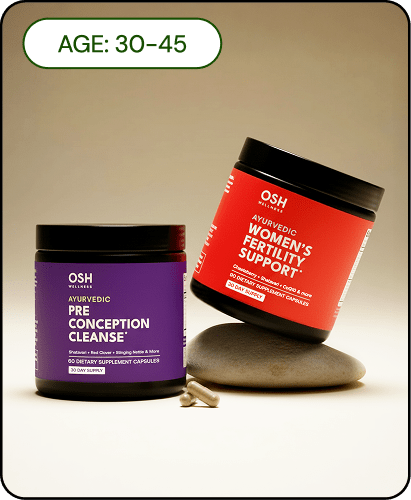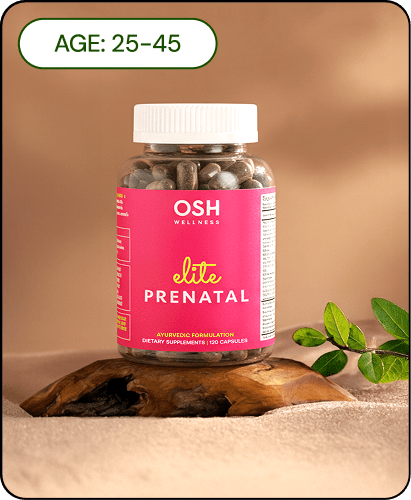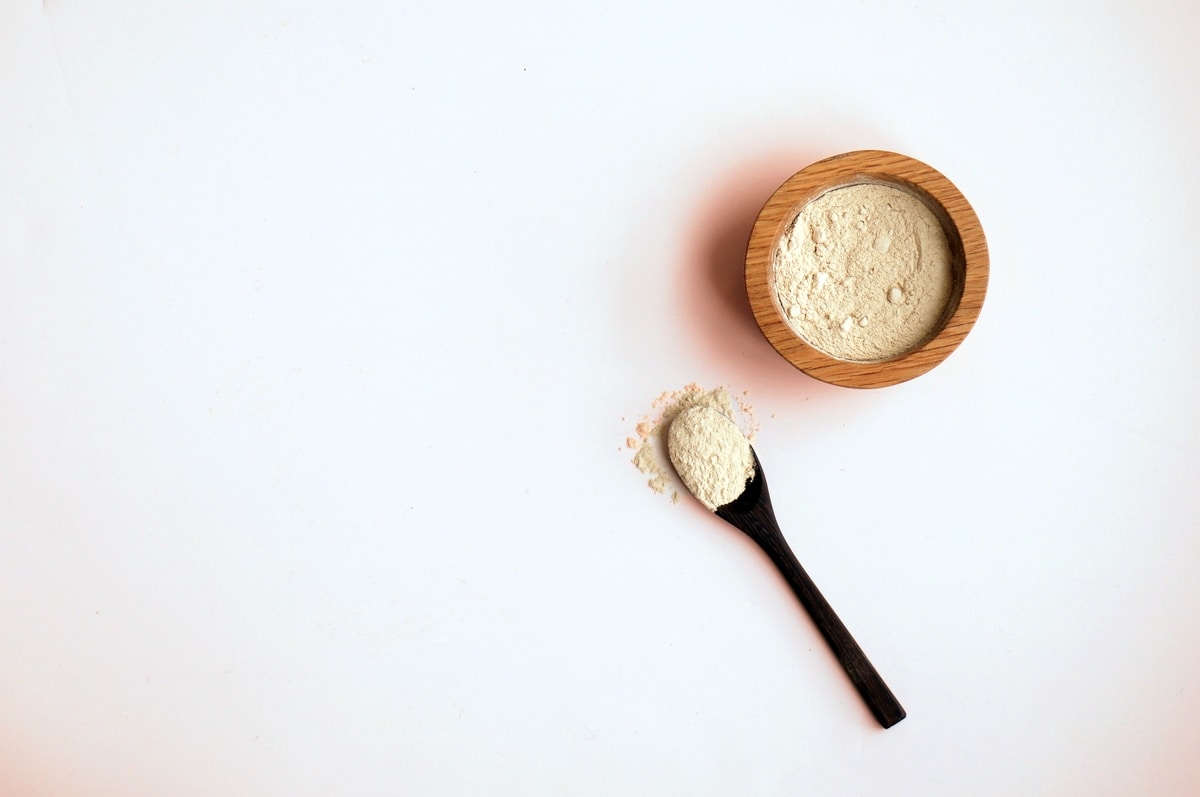Table of content
Shatavari has been used in Ayurveda for hundreds of years to support female reproductive and maternal health. This natural herb is also a known galactagogue and an effective adaptogen. It can bring the body back to state of balance, which could mean resisting stress when needed or increasing milk supply based on the baby's need. Before we take a deep dive into the benefits of this miracle root from conception to postpartum, let's understand its origin.
What is Shatavari?

Shatavari (asparagus racemosus), also known as wild asparagus, is a plant native to Indian subcontinent, and a staple in Ayurvedic medicine. It is bitter and sweet in taste and has nourishing, soothing, and cooling properties with a grounding effect. The literal translation of Shatavari is 'she who possesses 100 husbands', which refers to its use as a female reproductive tonic and aphrodisiac.
Let's take a look now at the benefits of Shatavari for maternal health during stages of conception, pregnancy and breastfeeding.
Fertility and conception

Shatavari has been well known, and commonly used in Ayurveda for promoting female fertility and maintaining healthy reproductive system. It is known to regulate estrogenand support the production of luteinizing hormone, which is responsible for triggering ovulation. Shatavari can thus be helpful in regulating menstrual cycles, which can important for conceiving.
Being an effective adaptogen, it may also be helpful for stress-induced fertility issues. Shatavari is also considered an aphrodisiac for both men and women, and can improve chances of conception. The herb contains mucilage, which helps support health of the mucous membranes of the cervix and boosts healthy cervical mucus production that assists in conception.
Pregnancy
In Ayurveda, Shatavari has been described as absolutely safe for long-term use, even during pregnancy and lactation[2]. There are some practices that do not recommend Shatavari during the first trimester, as not enough research has been done to study the effects of Shatavari during pregnancy. As always, it is best to consult your OB/GYN if you are pregnant and considering consuming Shatavari.

Postpartum and breastfeeding
Shatavari root has several beneficial properties for postpartum and breastfeeding mothers which warrant making it a staple in a new mother's pantry.
- Increase milk production: Shatavari is a well-known galactagogue, which means it can boost milk production naturally[ 3]. It has been used to support healthy lactation since hundreds of years in Ayurveda. A recent study demonstrated that Shatavari supports lactation by boosting prolactin (hormone responsible for stimulating lactation) levels in the mother's body by as much as 3 times.
- Reduces stress and anxiety: Being a new mother can be overwhelming, and stress/anxiety are very common in the postpartum period. Shatavari's adaptogenic properties help in reducing stress and anxiety and bring in a little calm.
- Helps with hormonal balance: The same property of Shatavari, to regulate estrogen and menstrual cycles, also makes it beneficial for postpartum period, when hormones are still fluctuating and imbalanced.
- Rebuilds strength and vitality: Shatavari has long been used as a rejuvenative in Ayurvedic medicine. It is believed to promote strength and vitality, which is very useful for new mothers for regaining strength and maintaining energy levels during the day.
- Antioxidant and Immunity booster: Shatavari is also rich in antioxidants, which help protect cells from damage and oxidative stress, and support postpartum healing. It may also boost immunity, which can give a much needed support to the new mother's weakened immune system.
Side effects
Shatavari is considered safe even for pregnant and breastfeeding mothers in Ayurveda. Since it belongs to Asparagus family, if you are allergic to asparagus, you should avoid Shatavari and seek medical attention if you notice any allergic reactions. Shatavari is also used a natural medicine to lower blood sugar, so it should be avoided if one is already on diabetes medicines.
How much Shatavari to consume

Shatavari can be consumed in powder, liquid or tablet/capsule form. A typical dosage of Shatavari powder is 1/4 to 1/2 tsp per day.
Osh Wellness Lactation Support contains Shatavari in optimal quantity, which works perfectly in tandem with other ingredients to support breastfeeding and stress relief for new moms.
How to consume Shatavari
Shatavari root powder has traditionally been consumed by mixing it in warm milk with some honey if desired. It can also be mixed with ghee, or cooked in the ghee to make herbal infused ghee. According to Ayurveda, powdered form is considered the ideal way to consume herbs as the digestive process starts right from the taste.
To make it easy for new moms to consume Shatavari, Osh Wellness created the Mama's Lactation Support which is a blend or 100% organic and raw Ayurvedic superfoods like Shatavari, Fennel, and Moringa that boost milk production naturally.
Conclusion
Shatavari's numerous benefits makes it an excellent herb for fertility and postpartum recovery. Regular consumption in limited quantity can help alleviate stress, boost immunity, regulate hormones, boost milk supply in breastfeeding moms, and rebuild strength. For using it during pregnancy, it is best to consult your doctor.








